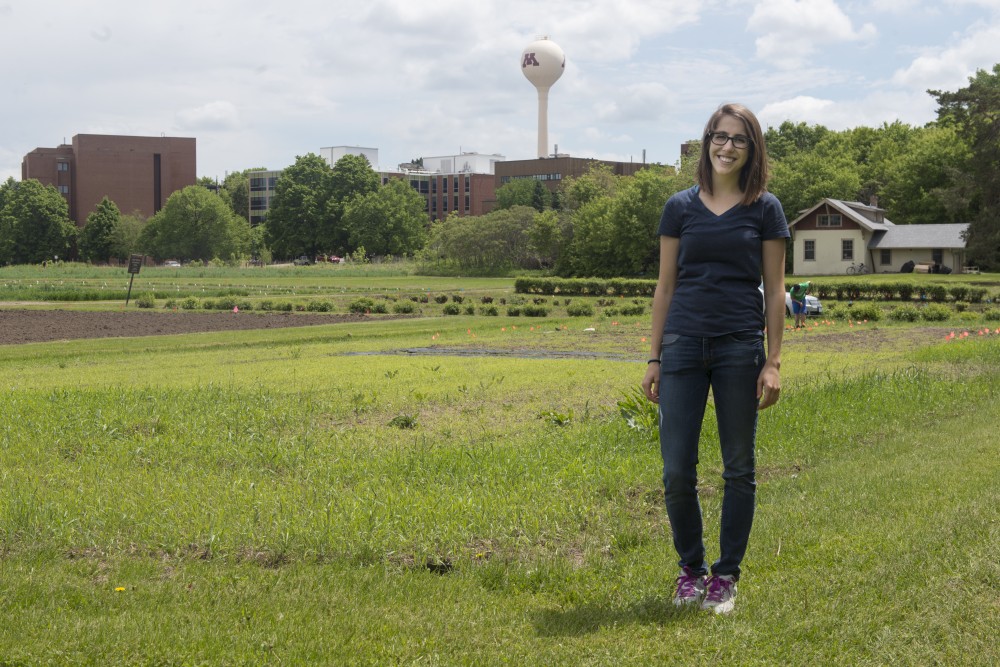Max Lettenberger plucked weeds from the ground Thursday in the warm May sun.
Lettenberger was working in Nutritious U Food Pantry’s new garden plot, which started this month and will provide one-third of the pantry with up to 1,300 pounds of fresh vegetables: from lettuce to onions and Chinese mustard greens.
The group’s founder, Rebecca Leighton, a second-year graduate student in the School of Public Health, started Nutritious U Food Pantry to help with food insecurity and emergencies at the University of Minnesota. She hopes the garden plot becomes a permanent solution while offering new culinary options.
“If you’re on a limited budget, are you really going to spend your very few precious dollars on a new vegetable that you’ve never tried before and maybe you won’t like?” Leighton said.
A 2015 Boynton Health Survey showed more than one in 10 University students faced food shortages. One in six worried their food would run out before they could afford to buy more.

The group plans to plant until mid-summer, when they will begin to harvest the vegetables, she said.
The Minnesota Institute for Sustainable Agriculture and the Native American Medicine Gardens donated supplies for the new garden plot after noticing food insecurity issues and wanting to find ways to help.
“I feel like there are a lot of students that are food insecure here on campus,” said Courtney Tchida, student program coordinator for MISA. “If there’s a way to get food to them, that’s really important.”
Tchida and Francis Bettelyoun, coordinator of gardens with the Native American Medicine Gardens, worked to teach Nutritious U Food Pantry members and volunteers gardening basics.
“It’s been an interesting learning curve that I’m catching up on,” Leighton said. “Most of our volunteers don’t know anything about gardening.”
Bettelyoun said he was inspired to get involved with Nutritious U Food Pantry after seeing poster on food insecurity issues with students.
“I won’t use any [swear words,] but it kind of irked me,” he said, adding he hopes the garden leads to educational opportunities as well.
Leighton hopes the garden can become a source for educating students on alternative food options. The group plans to host cooking classes, educational gardening events and canning days with the harvested food.








